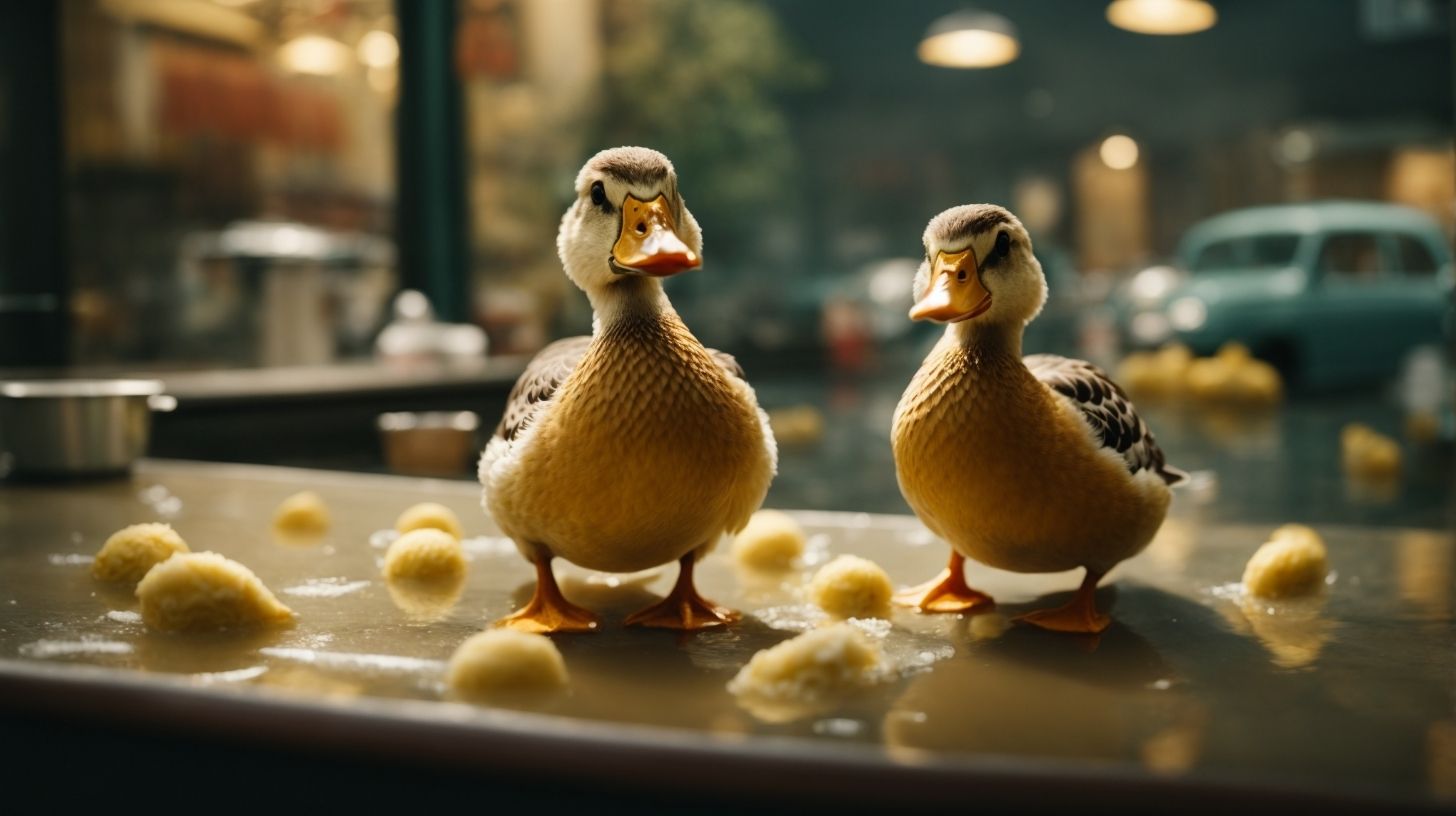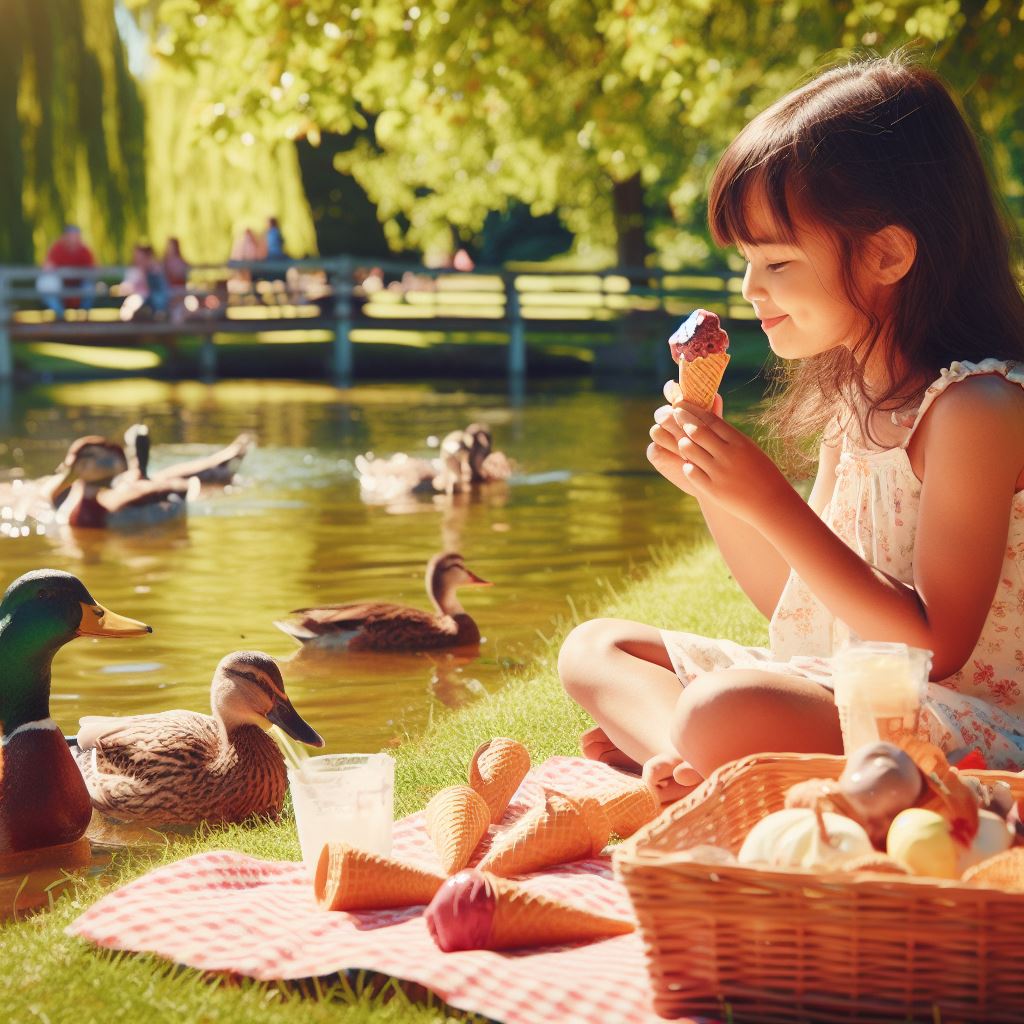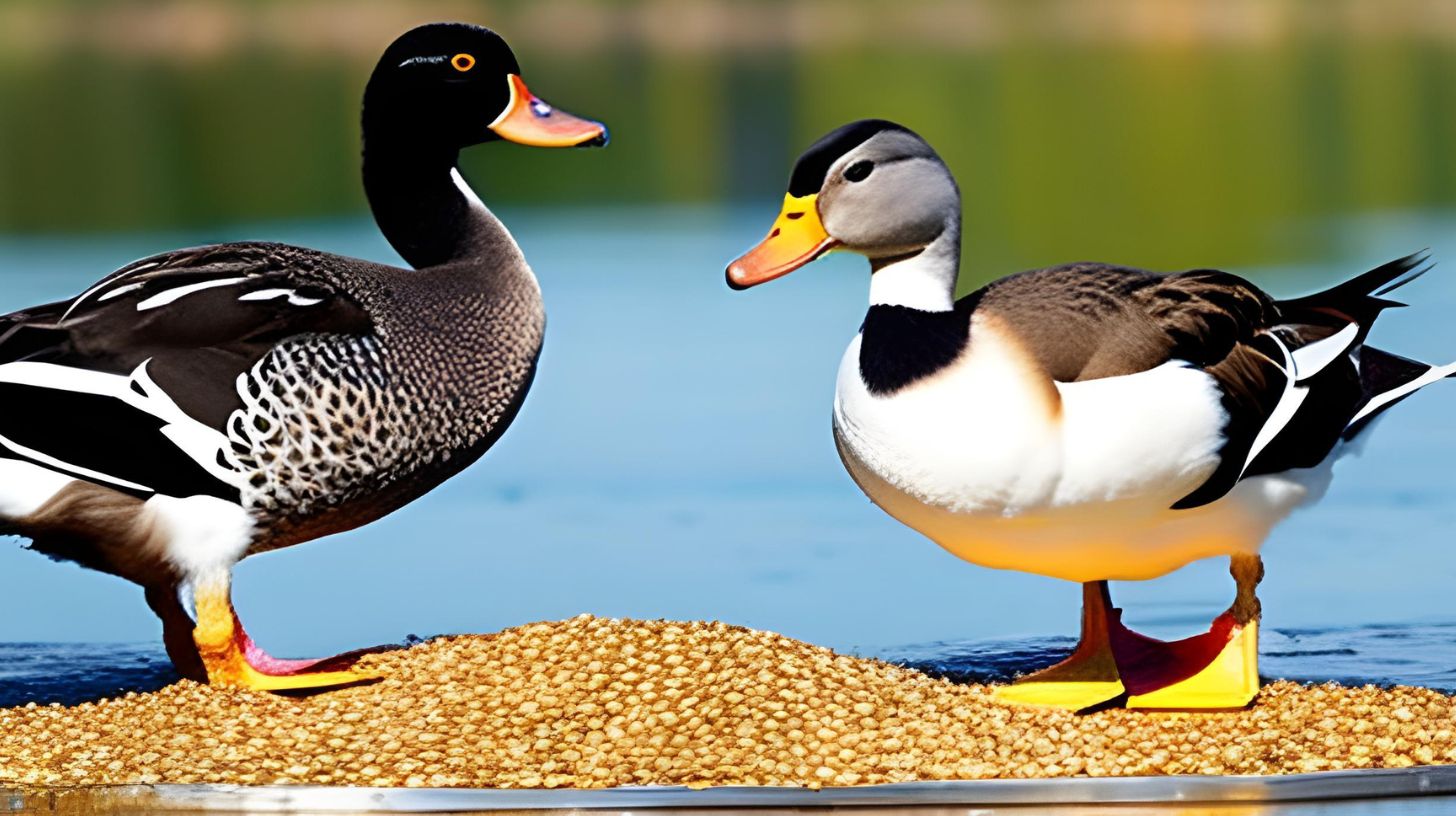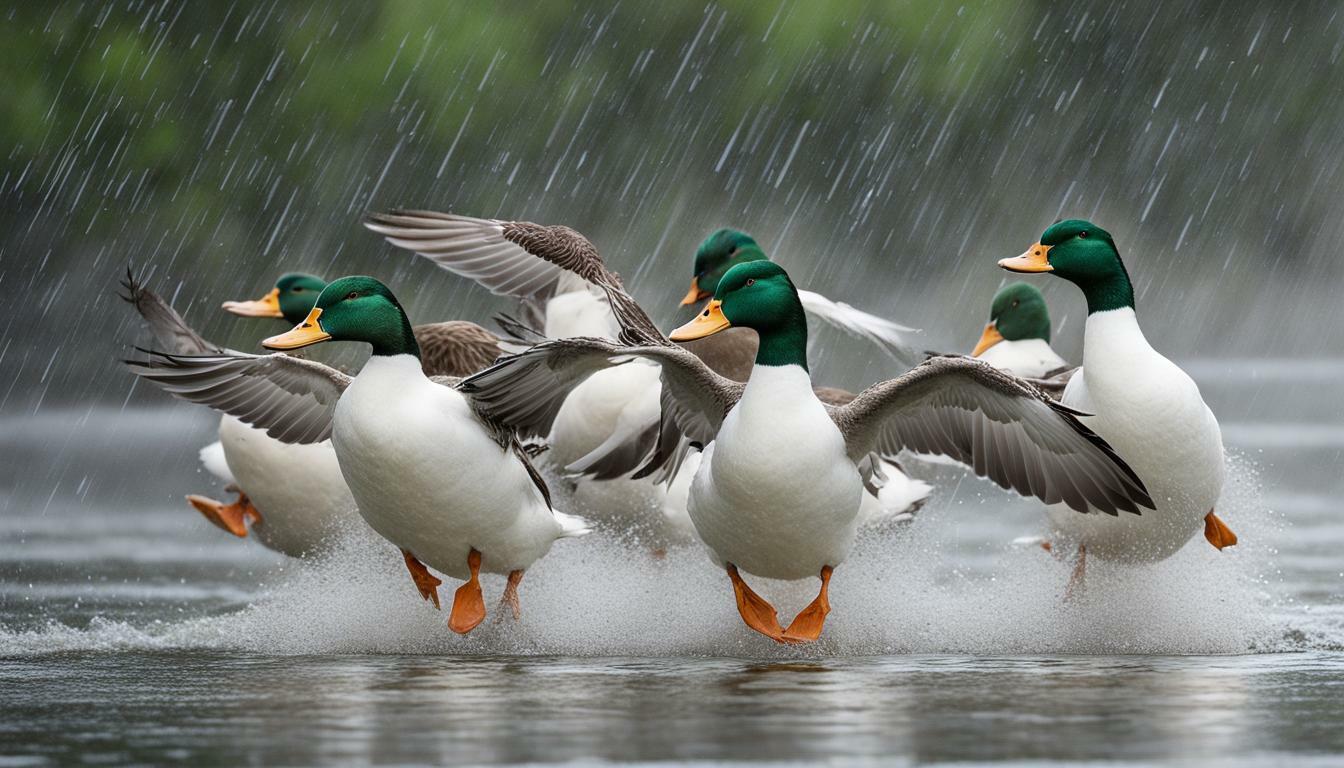Can Ducks Eat Ice Cream? The Health Risks Explained

Table of content:
Ducks are a common sight in parks and ponds, and many people enjoy feeding them bread or birdseed. But some may wonder, can ducks eat ice cream? Here is a comprehensive guide on whether ducks can and should eat ice cream and other human foods.
Key Takeaways:
- Ducks are omnivores and can digest a variety of foods, but ice cream provides little nutritional value and can harm ducks.
- Foods like bread, popcorn, lettuce, oats, peas, and birdseed provide balanced nutrition for ducks.
- Ice cream and other sweets like cookies or chocolate can upset a duck’s digestive system and cause health issues.
- It’s best to avoid feeding ducks processed human foods high in sugar, salt, and fat like ice cream. Focus on healthy treats.
Ice cream is not a recommended food for ducks. While ducks are omnivorous and can eat a wide variety of foods, ice cream provides little nutritional value. The high sugar and dairy content of ice cream can cause digestive upset in ducks.
Why Ice Cream is Harmful for Ducks
Ducks have a digestive system optimized for their natural diet, which consists of seeds, plants, and aquatic creatures. A duck’s digestive tract is shorter than many mammals, so food passes through very quickly. This allows ducks to eat frequently while floating on water.
However, it also means ducks lack the enzymes needed to properly digest dairy like the milk and cream in ice cream. The lactose and high fat content of ice cream is difficult for ducks to digest.
Additionally, ice cream is very high in sugar. Ducks did not evolve eating high sugar foods, and the excess sugar can overburden their system.
Health Risks of Feeding Ducks Ice Cream
Feeding ducks ice cream regularly can cause:
- Digestive upset – diarrhea, vomiting, gas, and abdominal pain from lactose and high fat
- Obesity – excess calories lead to weight gain and related issues
- Diabetes – high blood sugar from excess sugar intake
- Gastrointestinal problems – poor digestion of ingredients causes inflammation
- Tooth decay – sugar feeds oral bacteria that decay teeth
- Nutritional imbalance – lacks vitamins, minerals, and protein ducks need
While one small treat of ice cream likely won’t harm a duck, regular feedings over time can lead to health deterioration. Sticking to healthy duck foods keeps their digestive system functioning properly.
 What Human Foods Can Ducks Eat?
What Human Foods Can Ducks Eat?
Ducks are omnivores, meaning they eat a varied diet including plants and animals. In the wild, ducks eat:
- Aquatic plants like seaweed or water lilies
- Seeds and grains
- Fruits like berries
- Aquatic insects and small invertebrates
- Small fish and amphibians
This varied diet provides ducks with carbohydrates, protein, fat, vitamins, and minerals.
Ducks can digest unprocessed grains, seeds, vegetables and fruit. Here are some healthy human foods that provide balanced nutrition for ducks:
Grains:
- Birdseed or duck feed
- Cracked corn, barley, oats
- Rice, wheat
- Unsalted popcorn
Fruits and Vegetables:
- Grapes, berries
- Lettuce greens
- Peas, corn
- Squash slices
- Sweet potato
Protein:
- Mealworms or crickets
- Diced hardboiled egg
- Finely chopped fish, chicken, or turkey
Offer grain-based duck or birdseed to provide the carbs and protein ducks need. Supplement with small amounts of vegetables, fruits, and lean proteins.
Foods Ducks Should Not Eat
Some human foods are unhealthy or even dangerous for ducks. Avoid feeding ducks:
High Fat Foods:
- Cheese, ice cream, yogurt
- Oily or greasy leftovers like fries or pizza
- Chips, crisps, crackers
- Meat fat, skin, or bones
High Salt Foods:
- Chips, pretzels, salty snacks
- Cured meats like ham or bacon
- Heavily salted foods
Sugary Foods:
- Candy, chocolate, cookies, cake
- Sodas, sweet drinks
- Jams, jellies, syrups
- Sugared breakfast cereal
Toxic Foods:
- Chocolate – contains theobromine, toxic to birds
- Caffeine – unsafe stimulant for ducks
- Alcohol – ducks cannot metabolize it
- Avocado – contains persin, toxic to birds
- Dried beans or peas – contain lectin, toxic to ducks
The high fat, salt, and sugar content of these foods can overload a duck’s digestive system. Toxic foods like chocolate can be fatal. Stick to healthy options.
How Much and How Often to Feed Ducks
When feeding ducks appropriate treats, follow these tips:
- Only feed a small amount – a handful of birdseed or greens
- Offer treats only occasionally, not daily
- Avoid feeding ducklings without adult supervision
- Don’t dump large piles of food that can rot in water
- Spread feed out to prevent bullying or gorging
This prevents ducks from becoming overly reliant on human food or overeating. Let their natural foraging behaviors thrive.
Frequently Asked Questions
Can ducks eat bread?
Bread provides little nutritional value for ducks. The simple carbohydrates cause a spike in blood sugar. Moldy bread can make ducks sick. Avoid large quantities of bread.
Can ducklings eat ice cream?
No. Ducklings should not eat any processed human foods, including ice cream. Offer starter duck feed.
What fruits and veggies can ducks eat?
Grapes, melon, berries, lettuce greens, sweet potato, peeled squash, peas, and corn. Chop produce into small pieces.
Can ducks eat chicken?
Yes, ducks can eat small amounts of cooked chicken finely chopped into bite-size pieces. Raw chicken may contain salmonella.
Can ducks eat too much?
Yes, overfeeding can lead to obesity, malnutrition, and angel wing deformity in ducks. Moderation is key when feeding treats.
Can ducks eat dog food?
No, most dog foods are too high in protein for ducks and lack key minerals. Stick to formulated bird or duck feed.
Can ducks eat chocolate?
No. Chocolate contains toxic theobromine. Even small amounts can be fatal to ducks. Never feed chocolate.
Conclusion
In summary, ducks should not eat ice cream or other sweets made for human consumption. While ducks are able to eat a wide range of foods, ice cream provides little nutritional value. The high sugar, fat, and dairy can disrupt digestion. Stick to healthy snacks like birdseed, produce, and proteins.
Use moderation when feeding ducks treats. Avoid sweets and toxins that can cause serious harm to ducks. Follow these tips to safely feed ducks and support their health.
Welcome. I’m Adreena Shanum, the proud owner of this website, and I am incredibly passionate about animals, especially poultry. I founded adreenapets.com as a labor of love, stemming from my desire to share my knowledge and experiences with poultry enthusiasts worldwide.




